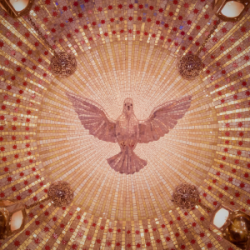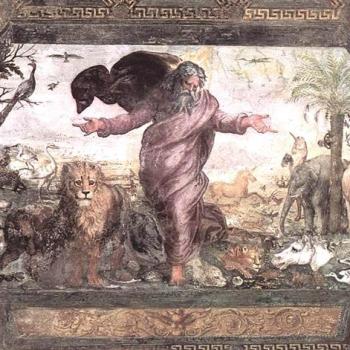Editors' Note: This article is part of the Patheos Public Square on Moving Past Hatred. Read other perspectives here.
A recent study found that while America is one of the most religious countries in the developed world, most of us are unable to answer correctly questions about the central tenets of our own faith. Fifty percent of respondents stated that they don't read books about their own religion, books that could illumine important details about the history of their religious beliefs. When respondents to this survey were asked about central beliefs and practices of other religions, they only answered about 50 percent of those questions correctly.
A later survey found that "knowing someone from a religious group is linked with having relatively more positive views of that group"— however, only 38 percent of American non-Muslims say they personally know an adherent of Islam. This same survey unsurprisingly found that respondents viewed Muslims more negatively than any other religious group residing in America.
These surveys hold important and instructive implications for interfaith peacemakers. For instance, Islam is the fastest growing religion in the world, and yet these statistical results show that American Muslims are widely excluded from various elements of private and public life right here in their own country. We also see that most Christians do not fully understand their own religious makeup. How can a society that still struggles with its own faith story endeavor to forge peace with another religion whose practices and practitioners it does not understand? And how can we spark a global evolution toward world peace when our own country remains so religiously divided?
As a seminarian, I participated in a program through the Washington Theological Consortium that sought to educate religious leaders in the history and theology of Islam, while training us in "best practices" for inter-religious dialogue. What became evident to me in these courses was that most of us have not been trained to see or respect religious adherence as a form of human diversity. I also noted that many Christians have been immersed in the doctrine of their own denomination, but have not been immersed in the sociological context of what it means to be religious in a globally-focused world.
Because most of us don't understand the implications of globalism on religious life, we're unable to appreciate our true station in the landscape of world religions. Proper context, however, tells us that only 12 percent of the world's population are Protestant Christians (aka Baptists, Lutherans, Methodists, UCC, etc.), while 16 percent of the world are Catholic Christians. Twenty-three percent of the world's population are Muslims, 15 percent are Hindus and 7 percent are Buddhists. Christians are a majority presence on American soil, but are a minority in many other parts of the world. We're just one part of the world's faith story. These statistics are available for all to review, yet we are not trained to see ourselves as a patch in the great quilt of humankind, or as citizens of the world.
Many of us have accepted the proposition that our personal religious truths are all that we need to know and understand. However, in accepting this proposition, we've lost touch with the core of what is needed for local (and especially global) peacemaking. We do not see that as parts of a greater religious landscape, we have a responsibility to be informed and curious, humble and at times deferential, teachable and ever-learning.
The inescapable facts are these: We cannot seek peace with our neighbors until we are willing to search for common ground. We cannot find common ground until we are willing to learn new things and build new relationships. And most importantly, we cannot instill "peace" elsewhere until we've come to fully understand it ourselves.
We need an evolution in our own collective consciousness—a zeitgeist, if you will—that will help us to become more humbly curious of our religious neighbors' values. This evolution would help us to see that while the world's religions are starkly different in doctrine and practice, they are quite the same in their desire to instill a sense of compassion and tradition into those who follow them. This evolution would help us to see that ways of loving the Divine are plentiful, diverse, and each worthy of respect. This respect, rooted in the humble affirmation of our mutual humanity, is the platform for peacemaking here in America and around the world. However, this respect will continue to elude us until we've taken the time to learn about and befriend people of other religions.
We must seek to know our religious neighbors better, to treat them with a deeper sense of respect, and to befriend them when given the opportunity. When we've accomplished this feat here at home, we will know how to begin the practice of religious peacemaking in other parts of the world.




